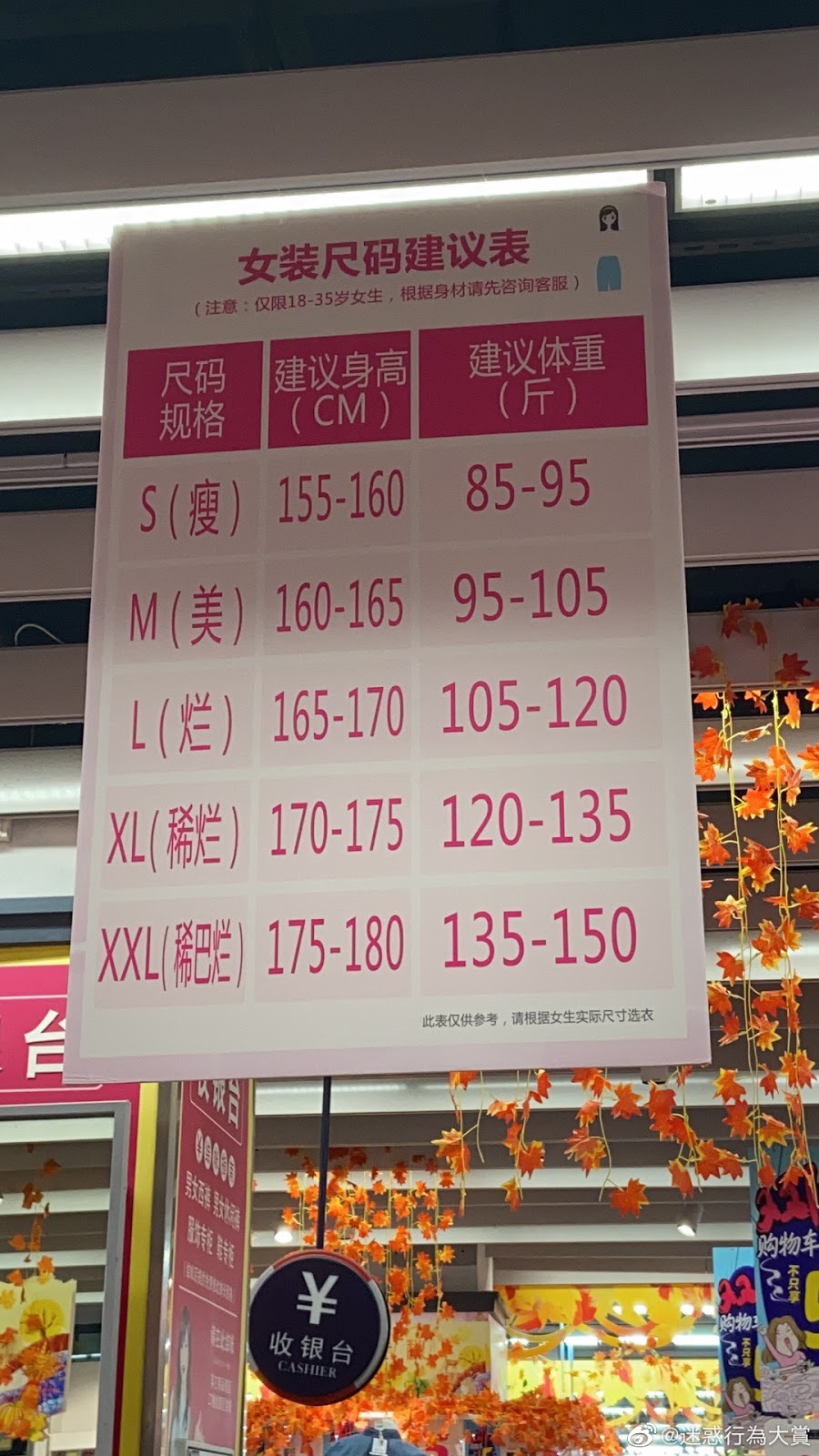Leading Chinese supermarket chain apologizes for ‘fat-shaming’ size chart
Fat shaming is all too common on the Chinese internet and in advertising, but this week, one of China’s biggest supermarket chains was forced to apologize for displaying a derogatory size guide.

RT-Mart (大润发 dà rùn fā), one of the biggest large-scale supermarket chains in China, has issued a public apology after being accused of “fat shaming” by using a size chart for clothing that called plus-size women “rotten.”
The size guide was first spotted in one of its stores by a customer, who later took to social media to call out the retailer. “I was shocked when I saw this size chart at a RT-Mart location today. Am I completely rotten?” the person wrote in a Weibo post.
A photo taken by the angry customer shows the size chart in the store’s women’s clothing section. In addition to regular sizing standards that provide weight and height measurements, the guide states that women who wear size small or medium are “slim” and “beautiful,” whereas those who wear size large and up are “rotten.”

The chart instantly attracted the ire of internet users with many condemning it for indulging in casual shaming of women’s bodies. “This is so gross…who thought that would be a good idea? It’s unfair that women have to endure these snide comments about our bodies on a day-to-day basis!” a Weibo user wrote (in Chinese). “I’m so fed up with being judged and shamed for my weight. These fatphobic companies just can’t give me a break,” another remarked (in Chinese).
The growing number of complaints on social media prompted RT-Mart to remove the size guide from its stores and issue an apology. “We are sorry for the inappropriate wording of our marketing material and the offense it caused,” the supermarket chain said in a statement (in Chinese) released today. The company also stressed that the incident was an “isolated” event and that it would do its best to avoid similar mishaps in the future.
The apology, however, was received skeptically by many people who said that they have had enough of Chinese brands promoting unrealistic beauty standards for women and being insensitive to the plus-size community. “‘Inappropriate wording’ is a light way to put it. This is intentional and malicious,” a Weibo user commented (in Chinese). Others declared that they would boycott RT-Mart. “Your apology is NOT accepted. See you on my blacklist,” said (in Chinese) another one.
Body shaming is stitched into the fabric of Chinese culture. In fact, it’s so embedded in Chinese women’s everyday lives that people don’t often recognize when they are perpetuating fatphobia, or the act of discriminating against someone because of their size. For example, in 2015, there was the collarbone challenge, which saw thousands of women sharing photos of themselves balancing coins above their collarbones. A year later, in another disturbing competitive slimming fad named #A4Challenge, women were encouraged to measure their waists against slices of A4 paper.
But in recent years, the idea of fat shaming has come under increasing scrutiny. Earlier this year, the #4cmWristChallenge, in which women used a ruler to measure the size of their wrists, was met with negative responses from critics, who slammed the trend by posting images of their middle fingers.






